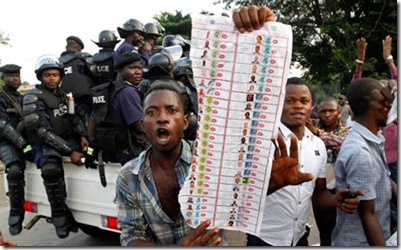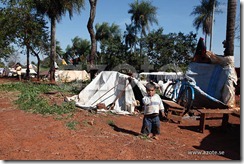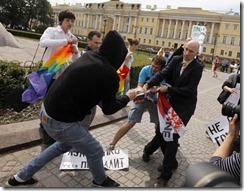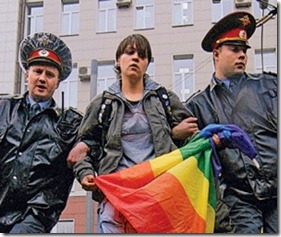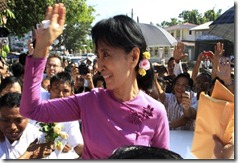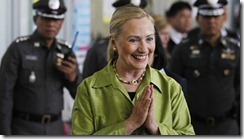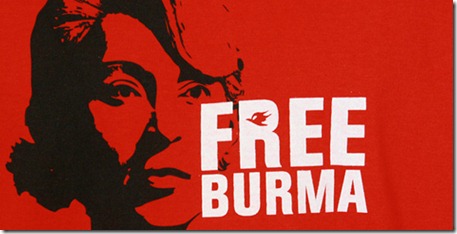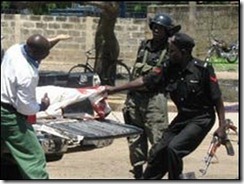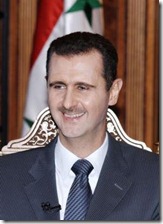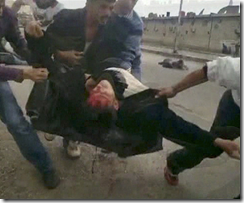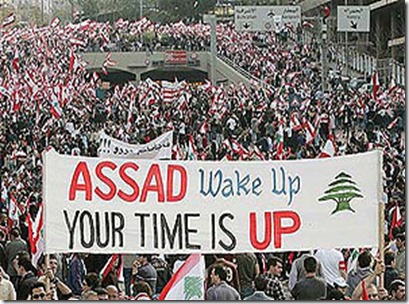Tragically, many of the anxieties and fears leading up to the Democratic Republic of Congo’s second ever election appear to now be materialising. Already branded ‘chaos’, today’s poll has been marred by scenes that bring the very concept of Congolese democracy into stark question.

This mayhem follows a weekend of violence in which leading opposition candidate Etienne Tshisekedi was blocked from attending his final campaign rally by police, as rival groups took part in fatal confrontations in the capital, Kinshasa. Eventually Tshisekedi was escorted through the streets by supporters wielding guns and machetes, whilst across the city, President Joseph Kabila’s bodyguards are purported to have shot at bystanders.
Yet despite the disorder and bloodshed, there are also optimistic signs. In many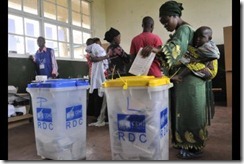 parts of the DRC – which covers the same landmass as Western Europe, suffers from chronic infrastructure problems and is plagued by more armed groups that perhaps any other African country- voting has been remarkably peaceful, if not particularly efficient. Inspirationally, over thirty million voters are heading out with a mix of pride and bravery, hoping to shape the DRC’s future for the better and finally move away from the cycle of dictatorship and conflict that many have know for all of their lives.
parts of the DRC – which covers the same landmass as Western Europe, suffers from chronic infrastructure problems and is plagued by more armed groups that perhaps any other African country- voting has been remarkably peaceful, if not particularly efficient. Inspirationally, over thirty million voters are heading out with a mix of pride and bravery, hoping to shape the DRC’s future for the better and finally move away from the cycle of dictatorship and conflict that many have know for all of their lives.
This was never going to be an easy or straightforward election – but the mass participation and determination of the vast majority of citizens may still make it an historic one.
Nevertheless, there remains the risk that all of this could be undone by the behaviour of candidates once the result is announced. After the 2006 election, then opposition leader Jean-Pierre Bemba (now being tried for War Crimes at the International Criminal Court), accused Joseph Kabila of stealing the vote, and dragged the country into weeks of bloody violence. This time around there is already talk of ballot box stuffing; and no sign that either Tshisekedi or Kabila will give any ground in the case of a questionable or disputed result..
The imminent expiration of Kabila’s constitutionally-mandated presidential term adds a further layer of tension. If a clear winner has not emerged by the first week of December the DRC will effectively be left with no official president, creating a dangerous political vacuum.
For these reasons it is essential that, after the papers are collected, all sides behave responsibly; allowing genuine scrutiny of the result, whilst drawing a clear line between highlighting discrepancies and encouraging street violence. It is also crucial for the international community to provide whatever active support is needed for the twenty-two-thousand-strong UN peacekeeping force that is gearing up to deal with post-election clashes. These are no small asks, but without them the DRC may see much more chaos before it ever sees democracy.